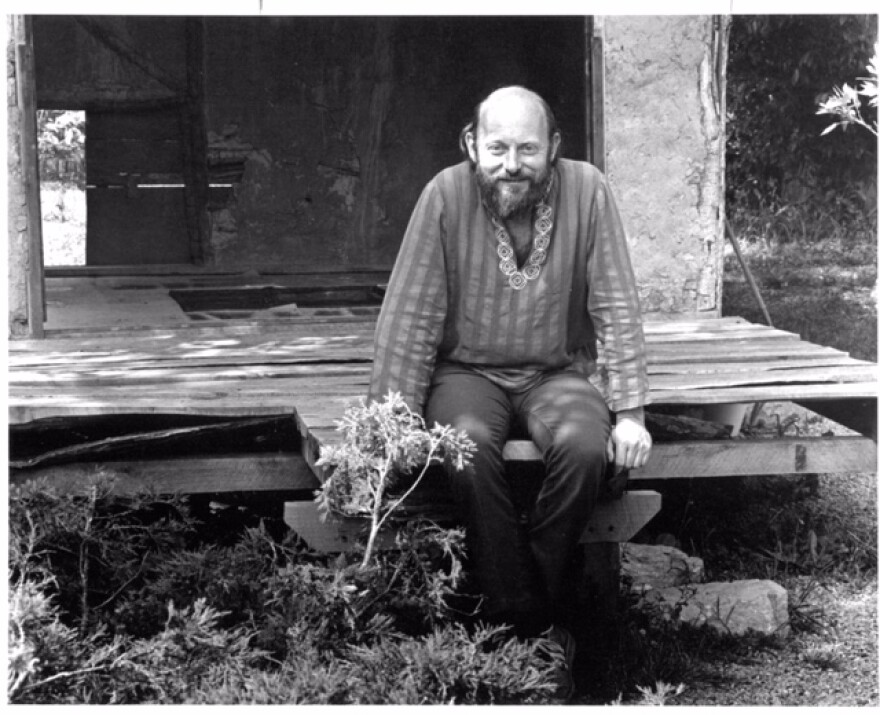Sometimes men and woman find their direction in life as a result of their military service. This is true for Harold Wright. Today, Harold is an award-winning poet and translator of the Japanese language. But this isn’t the direction Harold expected his life to take when he joined the Navy long ago. A last-minute job assignment changed everything.
Harold Wright is the son of a third generation Appalachian coal miner, turned carpenter. He graduated from Northridge High School in 1949. A year later, the Korean War began and Harold decided to join the Navy with a friend, thinking they’d go to war together. But they were quickly separated and Harold was made a Seabee, a member of a land based naval construction battalion. He was even more surprised to learn that rather than going to Korea, he’d be going to Japan.
"We already fought those people in a War, I don’t know why we’re going to Japan!" says Harold recalling his early reaction to his assignment. "But when I got off the troop ship, went down the ladder with my sea bag on my shoulder, and went to shore, there was two carpenters there building a handmade boat. They had their saws, plains and hand tools. My dad was a carpenter, my uncles are carpenters, but those two Japanese were doing work that I knew no one in my family could do. They were really skilled at it. And so I went up to them and was like, 'Oh, that’s really good, that’s amazing,' and they just jibber jabber at me. They couldn’t speak English, and I couldn’t speak Japanese. And the thought hit me right then: these Japanese have something to teach me, but I don’t know what it is, I don’t know what it is until I learn this language."
When he arrived at the base, Harold was put in charge of the library.
"My duties were basically to order books and check out books, but what I really did was study Japanese," says Harold, who fell in love with Japanese culture. He recalls a defining moment during his time there.
"I was standing out by a river one time writing a poem and looking at the river, looking at the bamboo, and writing a poem, and a drunken construction worker came down the road. He was really drunk, and he just staggered over and said, 'What are you doing there.' I thought, Oh God, 'Writing a poem.' If this was Dayton, Ohio, he would beat up on me, I know that. He said, 'Give me that notebook. Haiku!' He wrote a haiku, the drunken construction worker wrote a haiku. I thought, this is a cultured country, I like it over here."
After completing his military service, Harold decided to use his GI bill benefit to continue studying Japanese Language and Literature. He became the first member of his family to graduate from college. Harold collected oral histories and folk tales for years in Japan until he returned to the region to begin what would become a thirty-year teaching career.
"It was basically getting jobs in Ohio brought me back to Ohio," he says. "And I was very happy to be here because my parents still lived in Dayton an in and I could visit them and so forth."
During his time in the military, Harold Wright found something he was passionate about and fell in love doing his work. His experiences along with the GI bill enabled him to pursue that as a career.
"If they sent me to Korea, my life would have been totally different. Many of my classmates, friends from home and so forth did go combat and not all of them lived through the experience. I was able to find a whole other career and end up being an academic living in a nice little town like Yellow Springs and teaching Japanese for all these years, so it’s just an overwhelming feeling of gratitude."
Veterans Voices is part of Veterans Coming Home, a public media effort to support veterans, made possible by the Corporation for Public Broadcasting. The project is a partnership between WYSO and the Wright State University Veteran and Military Center. Will Davis produced this series as part of Community Voices.






